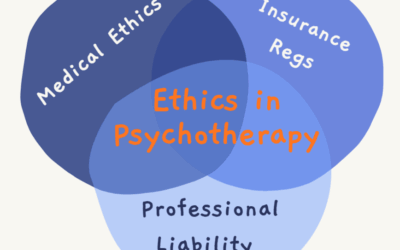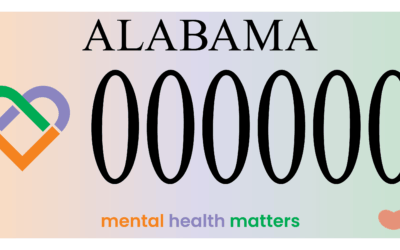How much does it cost to become a therapist? How do I become a therapist?
Becoming a Mental Health Practitioner in Alabama: Requirements, Costs, and Pathways
Key Points and Summary:
This is the most common question that we get. Don’t worry we have an answer for you!
What is the difference in a psychotherapist and a psychiatrist? What are the different types of therapists?
Psychiatrists and Nurse Practitioners can prescribe medication.
A psychiatrist is a licensed medical doctor. They are licensed by the AMA. They can prescribe medication.
A nurse practitioner is the highest level of licensure for a nurse who works with an MD. They are licensed by the state. They can prescribe medication.
A clinical psychologist is someone licensed with Ph.D. in Psychology. They are licensed by the APA. They cannot prescribe medication.
A MFT or marriage and family therapist typically does therapy with couples and families. They are usually trained in more systemic models of therapy. They have a masters degree and are licensed by the state. They cannot prescribe medication.
An LPC or licensed professional counselor is has a masters degree in counseling and a license from the state board. They have a masters degree in counseling. They are at the highest level of their professional licensure. They cannot prescribe medication.
An LICSW or an LICSW PIP is a licensed clinical social worker with a license to practice independently and supervise other social workers from the state board. They have a masters degree in social work. They are at the highest level of their professional licensure. They cannot prescribe medication.
Introduction: Mental health is a crucial aspect of overall well-being, and the demand for mental health professionals continues to grow. If you’re considering a career in mental health in Alabama, it’s essential to understand the different types of therapists, their roles, and the requirements to become licensed. In this article, we’ll explore the various pathways to becoming a mental health practitioner in Alabama, including the costs and educational requirements.
Types of Mental Health Practitioners:
Psychiatrists
Psychiatrists are licensed medical doctors (MDs) who specialize in mental health. They are licensed by the American Medical Association (AMA) and can prescribe medication. To become a psychiatrist in Alabama, you must complete a four-year undergraduate degree, followed by medical school, a residency in psychiatry, and obtain a state medical license.
Nurse Practitioners
Nurse practitioners (NPs) are advanced practice registered nurses who work in collaboration with physicians. They have the highest level of licensure for nurses and can prescribe medication. To become a psychiatric nurse practitioner in Alabama, you must earn a Bachelor of Science in Nursing (BSN), followed by a Master of Science in Nursing (MSN) or a Doctor of Nursing Practice (DNP) degree, and obtain state licensure.
Clinical Psychologists
Clinical psychologists hold a Ph.D. in Psychology and are licensed by the American Psychological Association (APA). They provide psychological assessments, diagnosis, and therapy but cannot prescribe medication. To become a licensed clinical psychologist in Alabama, you must complete a doctoral degree in psychology, a supervised clinical internship, and pass the Examination for Professional Practice in Psychology (EPPP).
Marriage and Family Therapists (MFTs)
MFTs specialize in providing therapy to couples and families, often using systemic models of therapy. They hold a master’s degree in marriage and family therapy and are licensed by the state. In Alabama, to become an MFT, you must complete a master’s degree in marriage and family therapy, accumulate supervised clinical experience, and pass the National MFT Examination.
Licensed Professional Counselors (LPCs)
LPCs hold a master’s degree in counseling and are licensed by the state board. They provide individual, group, and family counseling but cannot prescribe medication. To become an LPC in Alabama, you must earn a master’s degree in counseling, complete supervised clinical experience, and pass the National Counselor Examination (NCE).
Licensed Independent Clinical Social Workers (LICSWs)
LICSWs hold a master’s degree in social work and are licensed by the state board to practice independently and supervise other social workers. They provide mental health assessments, diagnosis, and therapy but cannot prescribe medication. To become an LICSW in Alabama, you must earn a Master of Social Work (MSW) degree, complete supervised clinical experience, and pass the Association of Social Work Boards (ASWB) Clinical Exam.
Costs of Becoming a Mental Health Practitioner:
The costs of becoming a mental health practitioner vary depending on the chosen pathway and the educational institution. Tuition fees for graduate programs can range from $20,000 to $100,000 or more. Additionally, there are costs associated with application fees, textbooks, licensure exams, and continuing education requirements.
Conclusion:
Becoming a mental health practitioner in Alabama requires a significant investment of time, effort, and financial resources. However, for those passionate about helping others and making a difference in their communities, it can be a highly rewarding career. By understanding the different types of mental health practitioners, their roles, and the requirements for licensure, aspiring professionals can make informed decisions about their education and career paths.



























0 Comments